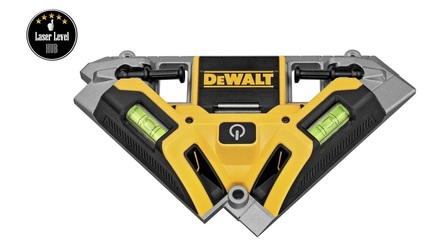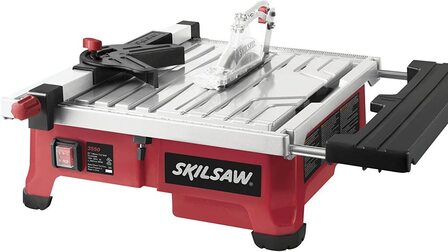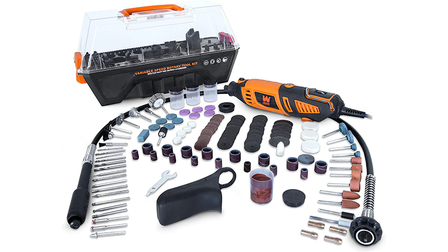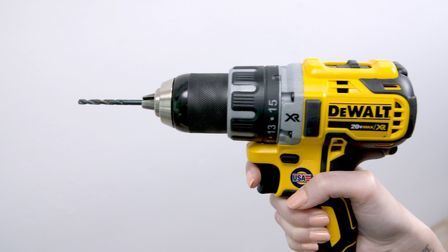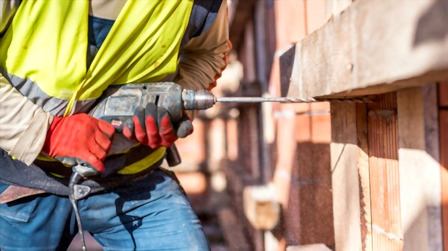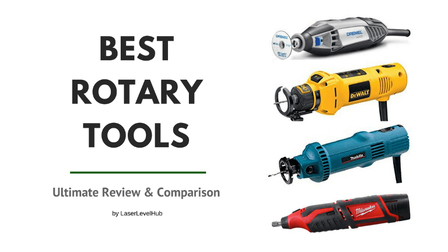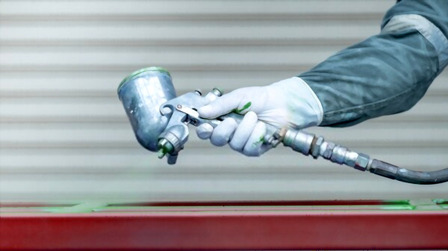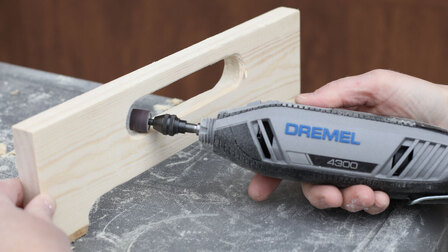Sometimes in your attempt to get a hard material drilling job done the art of choosing the right bit overtakes that of drilling.
And it is during those times that you wished you had a short guide on the best hammer drill bits as well as on how to choose the right one depending upon the task and the material.
This article is the answer to all your queries.
A guide that will take you through the different types of drill bits, systems of chuck design, when to use what, and tips to help you understand what the best rotary hammer drill bits are for your specific tasks.
Intended for beginners, this will also be useful for professionals to see what’s new in the world of hammer drill bits.
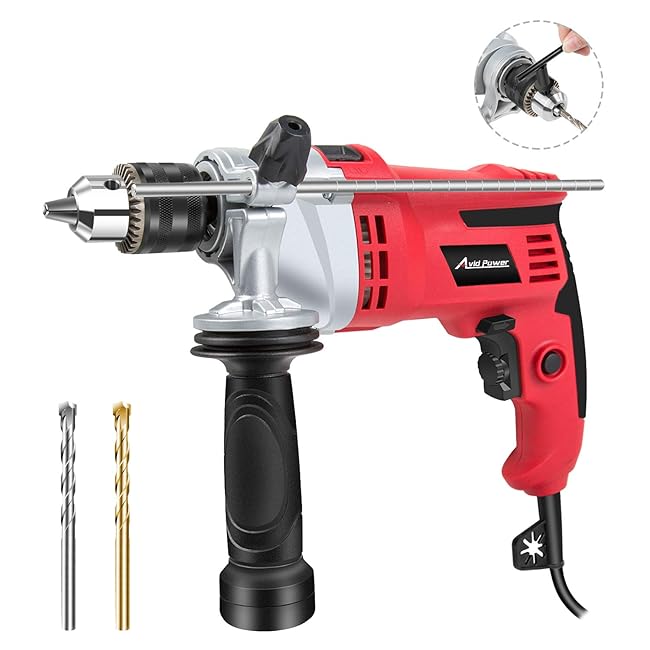
The content of this article is based on the laboratory experience and offline research carried out by our in-house experts.
While we do not recommend brands (as each brand has its own set of recommended drill bit types), we have specified certain bit types and their specifications that have resulted in the best output.
Without further ado, here is everything to know about hammer drill bits…
Types of Hammer Drill Bits
There is a major difference between the types of bits you use in a regular drill and a hammer drill. Just for your information, this article only deals with drill bits suitable for rotary hammer drills.
In other words, our focus will be on masonry drill bits.
This is a shortlist of different types of drill bits suitable for specific tasks. A professional or a pragmatic user will have all or most of these always handy.
Let’s have a look…
Masonry Bit
As the name itself suggests, a masonry bit is used for drilling through hard materials like concrete, stones, rocks, tiles, and bricks.
It is an advanced variation of the commonly used twist drill bit which is usually made of high-speed steel (HSS) or carbon steel with pointers made of carbide or some other alloy.
The distinguishing factor in a masonry bit is its cutting tip, which is not pointed.

It is rather a flat end that is driven perpendicularly to the surface of the material being pounded. The tip is usually made of tungsten carbide, which is where it gets its other name, “carbide bit”.
Masonry bit is the most common type of hammer drill bit as it can be used against all types of surfaces, including concrete. But make sure you invest in high-quality bits from Bosch or Hilti for the hammering action often tends to put a lot of pressure on the bit.
It comes in a wide range of sizes with a maximum length and diameter of 400mm and 16mm respectively.
Spade Bit
Often used for woodwork, spade bits can bore through wood and other lighter materials quickly. Attached to a hammer drill, a spade bit can do wonders if you are looking to drill bigger holes.
This is, however, only suitable for hardwood. Materials lighter than that will get obliterated by the hammer impact force.
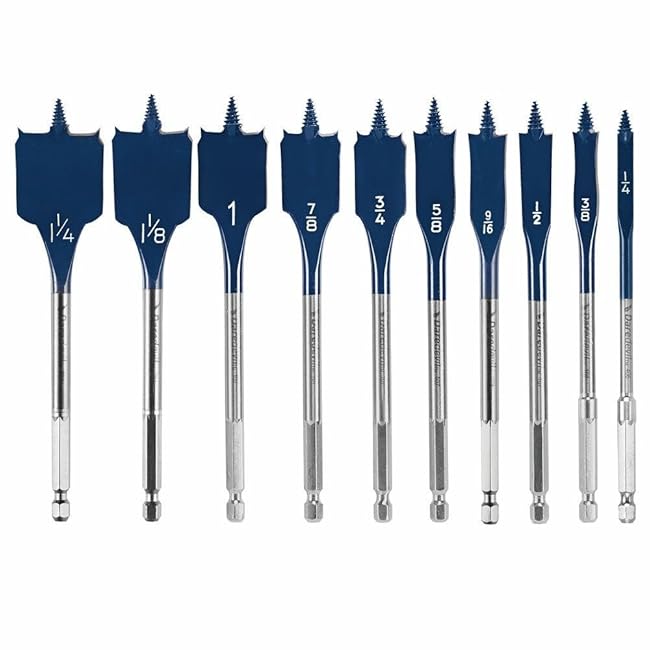
Chisel Bit
Perfect for demolition work, a chisel bit is your companion if you are into demolishing work and tile removal.
It helps you chisel away tiles from walls and floors with much ease without ruining the thin-set below.

But, if you also want the dry thin-set removed, hammer away and you will have the entire wall/floor for refurbishing.
A hammer drill chisel bit, along with masonry bits of different sizes, is a must-have in your kit. To use these sets, you may need an appropriate air hammer.
Tile Bit
Not exactly a bit for hammer drill but they are perfect for drilling through tile and glass. Put your drill in regular mode and use this to drill through tile without cracking the surface.
It will come in handy when you only have a rotary hammer drill and need to drill through a tiled wall.

Hole Saw Bit
Also known as a hammer drill core bit, it is suitable for when you want to excavate a portion of the material you are boring.
This is also a great bit if you want to drill a larger hole than is permitted by other masonry bits.
The bit usually has a cylindrical shape with sharp borders and a traditional masonry bit in the middle of it so that it can easily cut through the material.
Since we already know that the largest diameter a masonry bit provides is 16mm, a hole saw bit becomes essential in large boring tasks.
Need to create a big hole in the wall to get those HVAC pipes installed? get your hands on a core bit.

There are many more different types of drill bits like an auger, Forstner, countersink, and brad-point but they are not suitable to be used with a rotary hammer. Reason?
Because they cannot sustain the pressure induced by a hammer and they cannot drill through hard materials.
In essence, all the drill bits for the hammer drill we discussed above are a type of masonry bit.
Before you jump onto an online store and start buying, here’s a brief note on common chuck systems:
Different Types of Shanks
A shank is the opposite end of a drill bit that goes inside the chuck of the drill. There are three main types – straight, hex, and Special Direct System (SDS).
While the straight and hex shanks need a key for fixing and release, SDS bits use a simple insert-and-lock mechanism that holds the bit even under severe pressure. It is for this reason that hammer drills with SDS chucks are preferred.
SDS are of many types such as SDS Top, SDS Plus, SDS Max, and a special version for Hilti drills.

A quick look at your hammer drills’ manual will give you a better idea about the SDS type compatible with your model.
There is another common type called spline shank bits. These are similar to straight and hex but have a 12-toothed shank that fits into the chuck.
This is the reason why it is extremely important to check your model’s chuck system. Most modern systems support SDS, so we will assume it to be the default system in this article.
Drill Bit Materials
The make of a drill bit can control its effectiveness while drilling. Therefore, it is always good to be knowledgeable about different materials that drill bits are made of.
In most advanced jobs like drilling through a concrete patio or metal block, the material can have a great impact on the success of the task.
Here are different types of drill bit materials:
High-Carbon Steel
The most common drill bit material, they are the advanced version of low-quality soft low-carbon steel and are known for their hardened tempering. Suitable for drilling through all types of hard metal and stones.

High-Speed Steel
Shortly known as HSS, they are stronger than high-carbon steel and can withstand a lot more heat, making it perfect for drilling.
Tungsten Carbide
Usually used only for tips of drill bits, it is the ideal material for hammer drills.
If you go drill bit shopping, make sure all your drill bits are made of some carbide material. They are expensive and brittle, but they also get the job done.

Apart from these materials, drill bits are also coated with certain chemicals like black oxide, bronze oxide, and Titanium Nitride. The idea here is to extend the lifespan of drill bits and make them more resistant to heat.
If you foresee yourself using a hammer drill almost daily for a variety of tasks, get a pair of bits that are coated with such strengthening chemicals.
How to Choose the Right Hammer Drill Bits for Your Needs?
Now that you have a basic idea about the different types of hammer drills and the materials they are made of, it is time to grasp the art of choosing the best one.
Every task of hammer drilling differs from the next, mostly because there are hundreds of various materials out there.

You can’t predict what type of wall will you need to bore when you start a job. Of course, you can do a preliminary analysis of the job site and ready your tools.
But why bother for a last-minute rush to Home Depot to get the right drill bit when you can act beforehand?
Therefore, here’s a list of questions you should ask yourself to choose the best rotary hammer drill bits.
Question 1: What is the Job Type?
Two things to consider here are: material to be bored and the length of the bore.
Once you know what the material you will be drilling into, you can select a drill bit based on its make. While Tungsten carbide is the common choice because it can pierce through most stuff like concrete and bricks.
You can also go for ‘durum’ (strong silicon bronze alloy) if you anticipate the material to be stronger than usual. Hammer drill bits for concrete are usually made of durum.
The length of the bit is important too. Keep standard as well as longer (up to 400mm) bits ready just in case you want to drill through the whole of masonry walls.
Question 2: Standard or Not?
As we said, standard masonry bits are suitable for most jobs out there.
But if you feel that a certain job will require a more precise approach, go with special drill bits like that of Bosch’s Speed Clean bits that also remove the dust while drilling.

The only thing to keep in mind here is that most standard bits do not support SDS. So you may not be able to use the hammering action in your tool in that case.
You may use the bits in the sharpened or blunt mode depending upon the task. In jobs involving concrete, you may need to use sharp bits.
Question 3: What is the Shank Type?
Buy drill bits that are fully compatible with your machine.
If you own several hammer drills of different makes, keep a separate box of drill bits for each. This will be extremely helpful since not all bits are compatible with all models.
An example of this is that SDS and SDS Max bits are not compatible with each other.

So, if your tool only allows SDS Max, make sure you have a set of different drill bits with an SDS Max Shank.
A rule of thumb here can be this: SDS and SDS Plus bits are common for hammer drilling whereas SDS Max is used for demolition work.
Question 4: Is It a Special Task?
Drilling holes is one thing and chipping tiles or demolishing or boring big holes is another. So, you need to keep a set of various types of drill bits handy.
You can choose from types like hole saw and chisel for your different needs. But make sure the shank system is compatible with that of your machine.
Drill Bit Maintenance
It is our expert opinion that masonry drill bits are difficult to sharpen. Therefore, we recommend replacing them once they become dull than investing in instruments that can sharpen them. It is both cheaper and easier.
Conclusion
Since there are many sizes and shapes that can create different types of cavities, it is important to distinguish between them.
This guide will help you choose the best bit for your job as we have also given examples wherever applicable.

